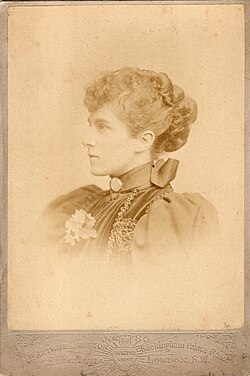
Many genealogy researchers at some point will struggle to find and identify women in the family tree.
While traditional records predominantly focus on male lineage, researching and documenting the lives of female ancestors enriches and expands the family narratives.
Research into female ancestors is an integral part of creating a comprehensive and healthy family tree for future generations.
Research your ancestors on MyHeritage
Challenges of researching female ancestorsChallenges of researching female ancestors
Researching female ancestors presents unique challenges stemming from historical norms and record-keeping practices. Throughout history, societal norms meant women frequently did not create many of their own records. They are more often named in a husband or father's records, making them more difficult to trace. Additionally, a name change upon marriage(s) complicates the search.
Start the research at homeStart the research at home
Start the search for female ancestors at home and within the family stories. Often overlooked, a family's oral history can provide valuable clues to the women in the family tree. Seek out family information already known within the family by talking to older family members. Do not forget to ask distant family members, too. Sample questions to ask:
- Who was [Grandpa Smith's] wife?
- What was her maiden name?
- When did they get married? Where?
Additionally, seek out keepsakes and ephemera kept in the family. Examples would be funeral cards, newspaper clippings, scrapbooks and photographs.
The Family BibleThe Family Bible
One of the most sought after genealogy records is the family Bible. The family Bible documents the births, marriages and deaths of family members and is invaluable when researching early generations of female ancestors.
Sources for finding the family Bible include:
- A family member
- State and national archive collections
- Internet Archive
- The Daughters of the American Revolution (DAR) catalog
Researching vital recordsResearching vital records
Vital records - birth, marriage and death records - are foundational documents in genealogical research, offering essential insights into both men and women in the family tree.
- Birth Records: Birth records and certificates provide vital information about an individual's birthdate, place of birth, and parentage. When researching female ancestors, birth certificates can help establish maiden names, maternal lineage, and familial relationships. Pay close attention to maiden names listed for mothers, as these can serve as crucial links to further research.
- Marriage Licenses and Certificates: Marriage records offer valuable details about a woman's marital status, spouse's name, marriage date and location. Make note of any witnesses as these could be a close relative.
- Death Records: Death records such as a death certificate provide important information about an individual's date and place of death, cause of death, and sometimes, parents' names. Death certificates can confirm maiden names and provide clues about their marital status, place of birth and surviving relatives. Pay attention to the informant listed on the certificate as this person may be a relative.
Community recordsCommunity records
Consider a woman's role in her community and what type of records that may have created. Often women were the communicators, cooks, caregivers and volunteers in the community. She may have participated in social causes or clubs. Formal records for these types of groups are scarce, but their causes and activities were frequently written about in local newspapers.
Newspaper articles documenting a society or club's activities and members provide clues placing a woman in time and place. Note how a woman's name is listed. A designation of Miss or Mrs. provides clues to her marital status. Newspapers can be found at:
Additionally, city directories are potential resources for club and society member lists and are an often overlooked resource for female ancestors.
Church and faith based recordsChurch and faith based records
Church and faith-based records constitute invaluable repositories of historical data. Baptismal, marriage and burial records can offer important details about a female ancestor's life including her full name, parents' names, spouse's name, and the date of the life event.
Other types of information found in church records include information on sponsors, witnesses and other relatives revealing an ancestor's FAN club.
Religious newspapers published by a church or specific faith should not be overlooked. Marriage and death announcements can be found recorded in their pages.
See alsoSee also
Explore more about female ancestorsExplore more about female ancestors
- MyHeritage: Birth, Marriage & Death
- Finding Females: Wives, Mothers, Daughters, Sisters & Paramours at Legacy Family Tree Webinars
- Resources for Genealogical Research You May Never Have Thought Of in MyHeritage Knowledge Base
- Researching Female Ancestors? You Can Overcome Those Research Roadblocks! by Lisa Lisson at Are You My Cousin? blog
References

